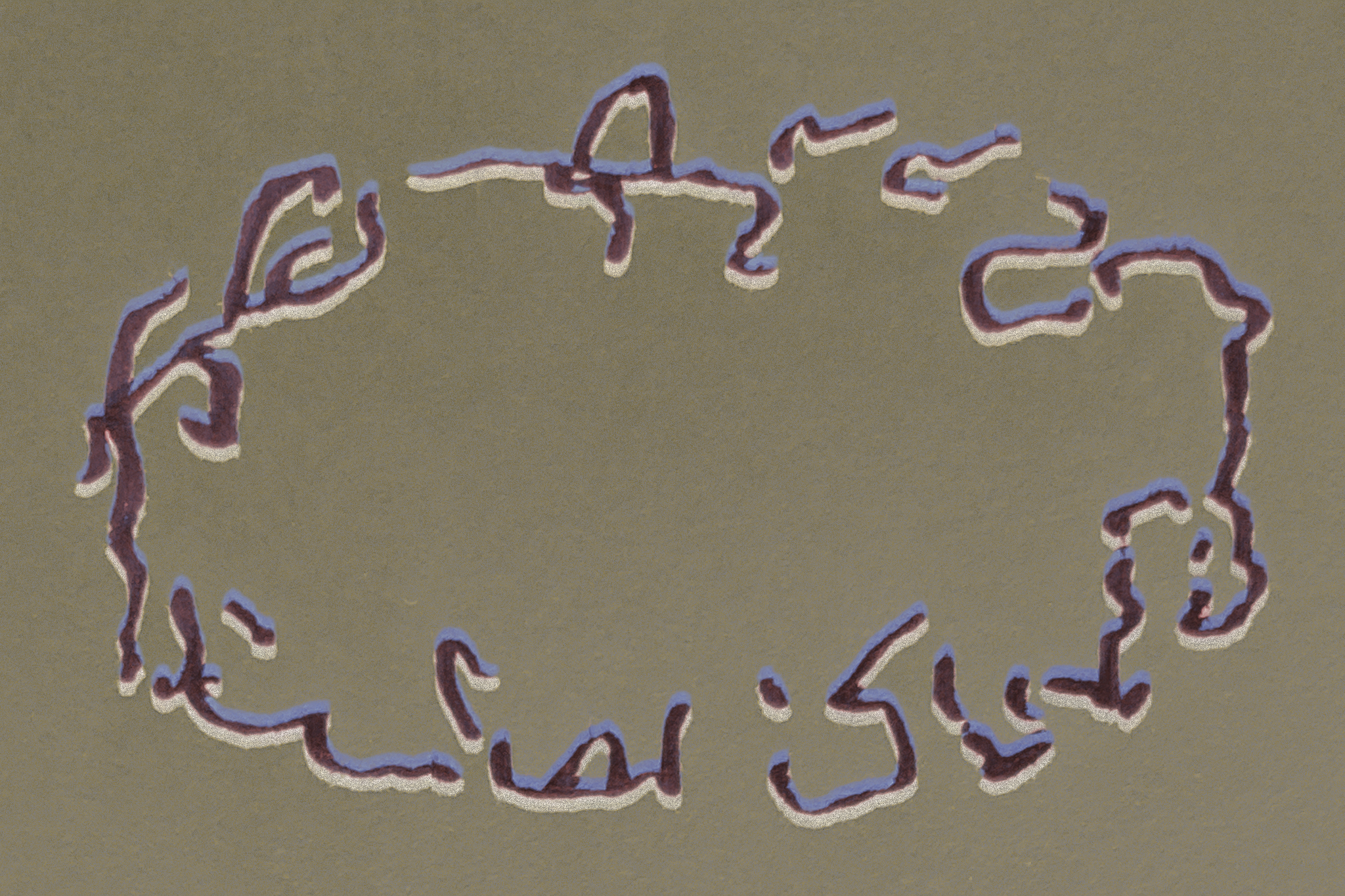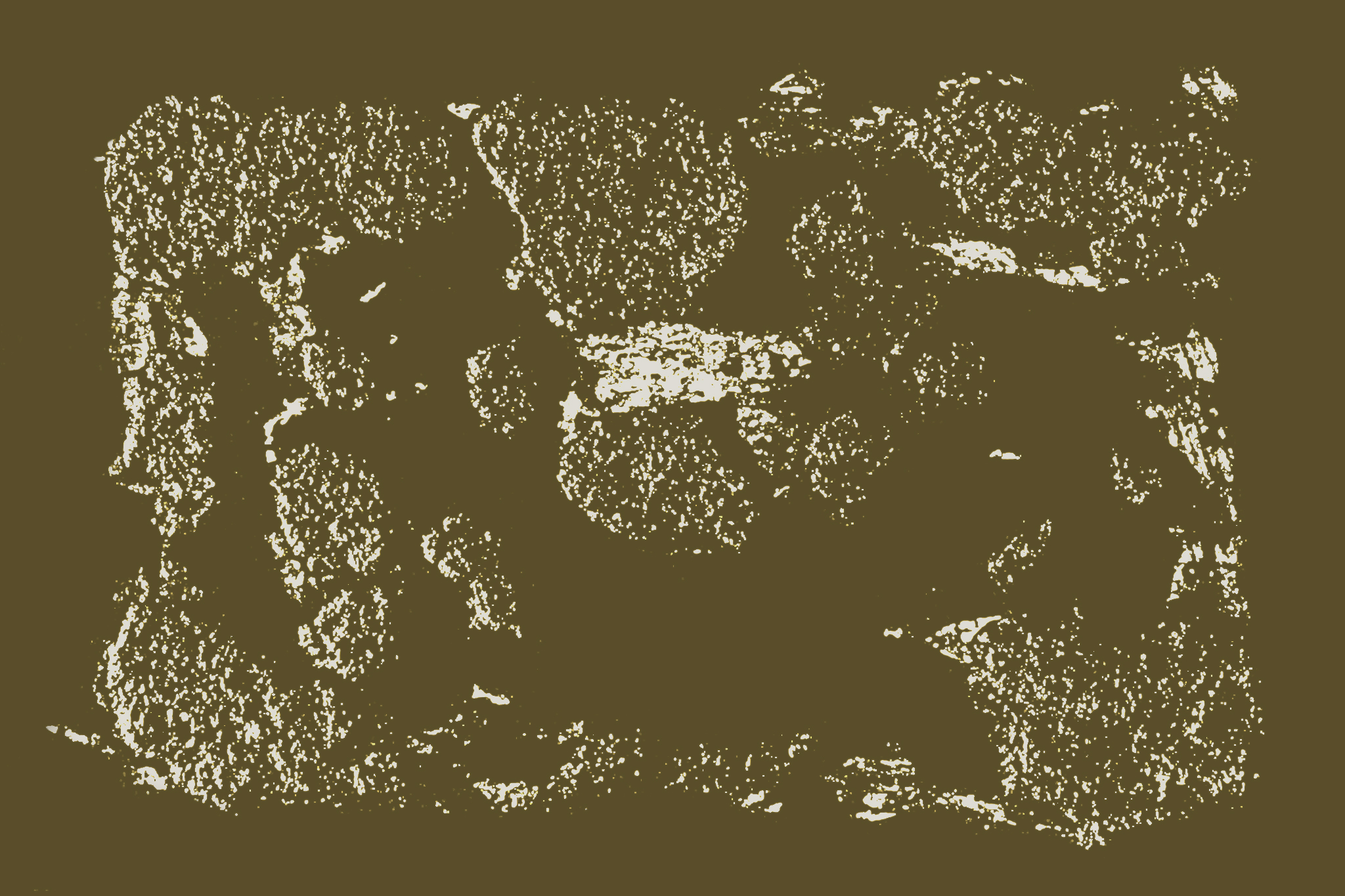
Interview with Geister Film
Nowhen: How did you all meet?
Sandra Makhlouf: We met at HFBK, in Hamburg. Marlon and I knew each other from before and then William moved to Hamburg. Then we all became friends.
Nowhen: And how did the friendship evolve into forming a collective? Maybe it’s more simple than that…
Sandra Makhlouf: It all happened quite spontaneously. We were interested in each other’s work and worked together on our scripts and shoots. I guess we wanted to cherish that in a way. I remember when we were looking for a name for our collective and we were kind of bouncing words off each other, it was funny. It took some time until we all agreed on Geister Film, and then it was clear.
I was working on “The Living Water” at that moment and the idea of Ghostliness was very present to me. Ghostliness, in a sense that there is something feelable but hard to grasp — and how cinema can make these ghosts appear.
Marlon Weber: This was something that interested me, too. The idea that films are haunted and that the films I like are haunted with something I cannot really describe. It is a fascination with films that have a ghost living in them, something unexplained, but somehow present. There was also another factor. Sandra and William’s mother tongue is not German. I remember talking about the name and for example William, who was the newest to the German language, did not have that many associations with the word.
William Wrubel: I remember blindly going through a German dictionary at one point, just searching for words that looked or sounded nice.
Marlon Weber: Somehow the word “Geister” spoke to us all on different levels, even without the associations. It stuck with us.
Nowhen: Why not Gespenst?
Marlon Weber: To me, Gespenst is something more concrete, more figural. Geist to me is mysterious and unexplained. It is unclear in which way it is present.
Sandra Makhlouf: Gespenster are scary. Geister can be nice, friendly ghosts.
Nowhen: This idea of hauntedness that you spoke about Sandra, I was wondering if William and Marlon, also explored that idea in your specific ways. As a collective, there is a guiding thread with your own specificities there.
William Wrubel: Especially with “Together” there is something similar. The film is about a threesome and the third person never arrives. This absence hangs over the whole film. Calling them a ghost or haunting would be a stretch, but it does, in a way, haunt the two main characters – in the same way that their past relationships haunt them. I was working with those ideas back then and I think I still am, in a different, less overt way. This disappearance of characters from the story, so that someone who seems like a lead can drop out at a certain point and you never know when you’ll see them again. Breaking away from conventional narrative structure in favor of capturing the jagged, unforeseen way events might unfold in life itself is something I’m very interested in as a filmmaker. Absence, hauntedness, they’re a big part of that.
Marlon Weber: I think there is also a certain manner of fragmentation that is interesting to us. This can take many shapes and forms. But an idea we circle around is maybe that a film does not have to tell everything, that absences are possible. And that when some things make sense emotionally they don’t have to necessarily be explained logically.
Sandra Makhlouf: I see it in all of our films, to a certain extent, that kind of a fascination for the inexplicable things, to be satisfied with the inexplicable.
Nowhen: A lot of your films are shot on 16mm and I wonder about your particular stance on the use of analog film for a lot of your productions.
William Wrubel: It gives an emotional and fragile quality to the work that I can’t really imagine not being there. With digital, you’re using a product – with the newest, biggest sensor, whatever – in the way that it’s meant to be used; with film, the camera is just a mechanism through which the material passes and is exposed. So you can get much more personal, much more experimental with the image. The image feels like your own. It’s also a way of working that I really like. When we work on 16mm, we’re not working with big budgets, so the material is very limited. You have to be careful with it, rehearse and take a lot of time to block things out. The way that I direct now is inseparable from the process of shooting on film. If, for whatever reason, I shot on digital, I would work in the same way.
Marlon Weber: It is the element of materiality that I enjoy. It has a certain warmth that I am attracted to working with. Like William mentioned, if you are working with a limited budget, it is also a different way of working. Every decision counts a bit more. Sometimes it scares me and sometimes I really enjoy shooting digital for that reason. What keeps bringing me back to it is the materiality and the sense of wonder.
Sandra Makhlouf: And you don’t know what will come out of it. You have to trust in what you did.
Marlon Weber: It is beautiful having a period of time to not see the images immediately. You could, of course, record the screen and watch takes. But so far none of us work with 16mm in that way. I really like this time in which the shoot exists without an immediate result.
Sandra Makhlouf: I haven’t shot in a while on 16mm, but I would like to do it again soon. Since I like to focus on working with the actors, I appreciate the concentration that it gives while you are working. Everyone has to be on the same wavelength and we all need to take it seriously, otherwise it won’t work. It puts you in a certain mood.
Nowhen: Marlon, your film incurs into genre in a way that is distinctive both from the work in the collective and from the usual way of looking at vampires. How did you choose this topic and this specific formal way of showing it?
Marlon Weber: I made „Dos amigos vuelven a casa solos de noche“ while living in Argentina. I was very inspired by the cinema I saw there and the willingness of people to make genre films without a budget. Or to take elements from genre films and then turn it into something else. In a way I surprised myself with the idea of making a film with vampires, but once I had the idea I could not let go of it. I became fascinated with the fact that working with genre brings rules with it, and that one can follow them or break with them. I really liked the botanic garden in Buenos Aires, and how the plants looked in the sunlight and the sensuality of the place during the day. So I wrote my story to happen there. William then told me at some point, that vampires usually can not go out during daytime, especially not during sunlight. I had completely forgotten about that. But I think that talks a bit about my approach. In the end it’s a film and I like to follow my interests. It’s a tension with genre and the existing rules that interest me.
Nowhen: Your films have been on the festival circuit and yet they are very specific, there is a very marked sense of aesthetic decisions that resonate emotionally. From the quietness of Rio, to the patience of The Living Water and the dynamic of Together, the films seem to be working a register that the festival circuit is often not open to.
Marlon Weber: I think where it sometimes can get tricky with festivals is when it becomes about ticking boxes, about fulfilling certain topics. Maybe it has to do with the idea of „relevance“ also. For me, for a film to be relevant means first of all that it is relevant to the person who made it, on a deep and emotional level. This is something that transmits in the end. And I think when there is such a personal connection to what you are making, there is not always a point made very clear, or a box that it fits in. Maybe it’s about wanting to see films that touch me, sometimes in an inexplicable way, rather than films that are relevant because they talk about a topic that’s in the news. I think these are the kinds of films we are interested in making. So there are different ideas on what relevant films are. And I think festivals have to balance this tension.
Sandra Makhlouf: I agree. I would say all three of us make films that are personal to us in the way we approach them. For me, it’s important to be free from the idea of an audience, especially while writing. Of course films should be seen, but I try to postpone this idea until the very end. Those are also the types of films I am interested in watching, films that don’t try to reach a goal.
William Wrubel: I think the festival system is in a bit of a crisis. There’s this insecurity about the state of film right now, that I think forces programmers to take less risks. They want something that they’re confident will sell. So then the kinds of films we’re talking about here — personal, emotional films that can’t be packaged or pitched so easily, but that take cinema as an art form very seriously — are at high risk of disappearing. And I find that really unfortunate. But precisely because these are the kinds of films that we’re interested in making, I believe we’ll also keep making them, regardless of what any system might want. Because it’s the beauty of the process and the craft that we care about, not the creation of a product that’s meant to be bought or sold.
Nowhen: Do you think in images, sounds or something else?
Sandra Makhlouf: Both, but not at the same time.
William Wrubel: Images. And dialogue.
Marlon Weber: For me it’s also images, but I’m challenging myself to think more of sounds and to sometimes think less of images. I am in the process of rethinking a lot of things. I used to work with a tripod and define the images very much in advance. For my next film, I want to try something else and work more in the moment, with a handheld camera.






